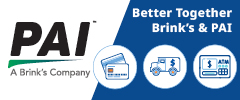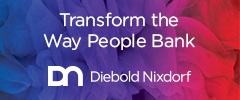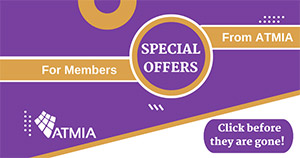News

Cash promotes responsible spending
Friday, December 22, 2017
View Showroom
By Currency Research
A number of studies cited in the Cash for Cash Part One’s Myth #13 (“Consumers Don’t Like Cash”) link payment cards to willingness to pay (WTP) and cash to fiscal restraint. It seems cash in hand is much more difficult to part with, particularly in impulse situations, than simply handing over a card and dealing with the repercussions later. Cash helps low-income individuals manage their money wisely and to spend within their means. A Sloane School of Management study shows that credit cards do indeed increase spending, especially on purchases of higher value goods.
The Central Bank of Ireland’s 2013 National Payments Plan (NPP) acknowledges the many bene ts of cash over payment cards for low-income consumers:
Cash promotes responsible spending habits. Cash and responsible spending go hand in hand for a number of reasons, including, the lessons that children are taught about cash that are ingrained from an early age.
This article has been posted with permission from Currency Research and is excerpted from The Case for Cash Part 2: The Justification. To request a copy of the full report or to learn more about Currency Research, please click here.
25 http://web.mit.edu/simester/Public/Papers/Alwaysleavehome.pdf
26 https://www.centralbank.ie/paycurr/paysys/Documents/National%20Payments%20Plan%20-%20Final%20Version.pdf
A number of studies cited in the Cash for Cash Part One’s Myth #13 (“Consumers Don’t Like Cash”) link payment cards to willingness to pay (WTP) and cash to fiscal restraint. It seems cash in hand is much more difficult to part with, particularly in impulse situations, than simply handing over a card and dealing with the repercussions later. Cash helps low-income individuals manage their money wisely and to spend within their means. A Sloane School of Management study shows that credit cards do indeed increase spending, especially on purchases of higher value goods.
ALWAYS LEAVE HOME WITHOUT IT: A FURTHER INVESTIGATION OF THE CREDIT-CARD EFFECT ON WILLINGNESS TO PAY
In studies involving genuine transactions of potentially high value we show that willingness-to-pay can be increased when customers are instructed to use a credit card rather than cash. The effect may be large (up to 100%) and it appears unlikely that it arises due solely to liquidity constraints...
In summary, this is the first study that demonstrates that willingness-to-pay is increased when customers are instructed to use a credit card rather than cash. The results are surprising both due to the size of the premium and the ubiquity of credit card use.25
The Central Bank of Ireland’s 2013 National Payments Plan (NPP) acknowledges the many bene ts of cash over payment cards for low-income consumers:
This is because a cash budget offers low income consumers control, certainty, flexibility and visibility as they can see their money and keep track of their spending on a daily and weekly basis. Conversely, low income consumers fear that if they use electronic payments they could end up spending too much, they are not able to earmark income and they cannot keep track of their finances.
Lack of security and fear of fraud also present a real barrier to moving away from cash.
Low income consumers face particular barriers in relation to direct debits as they do not suit their weekly budgeting cycle, they fear losing control of their finances and direct debits offer little flexibility.
Low income consumers also fear going into debt or unauthorised overdraft as this could incur default charges.
Similarly, debit cards can make low income money management difficult as it can be hard to keep track of what is spent, money cannot be earmarked, and often small amounts of money cannot be withdrawn from ATMs.
Furthermore, using cash-back facilities requires something to be purchased, which may be an unnecessary extra expense, and there is sometimes a small charge on low value debit card purchases.26
Cash promotes responsible spending habits. Cash and responsible spending go hand in hand for a number of reasons, including, the lessons that children are taught about cash that are ingrained from an early age.
This article has been posted with permission from Currency Research and is excerpted from The Case for Cash Part 2: The Justification. To request a copy of the full report or to learn more about Currency Research, please click here.
25 http://web.mit.edu/simester/Public/Papers/Alwaysleavehome.pdf
26 https://www.centralbank.ie/paycurr/paysys/Documents/National%20Payments%20Plan%20-%20Final%20Version.pdf
Additional Resources from ATM Industry Association
- 4/23/2024 - ATMIA Unveils Strategic Collaboration with Reconnaissance International to Elevate Intelligence & Networking Services to the ATM & Currency Industries
- 4/21/2024 - Fight Against Cashless Economy:
- 4/18/2024 - 3 myths about accepting cash at self service
- 4/18/2024 - Upcoming ATMIA/ASA Committee Meetings: April and May 2024
- 4/18/2024 - ATMIA Joins Atlanta Fed Meeting on Best Practices for ATM Cash Replenishment
- Show All ATM Industry Association Press Releases / Blog Posts



























